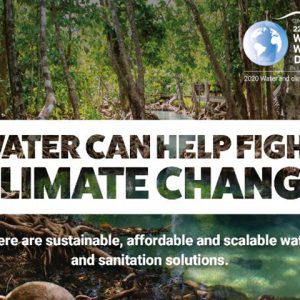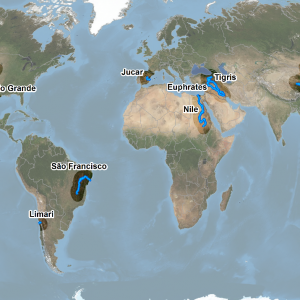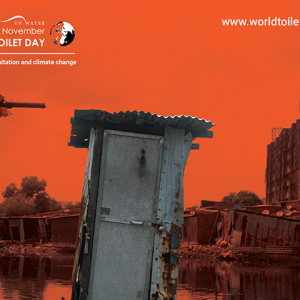
The Grand Ethiopian Renaissance Dam (GERD) represents a turning point in the Nile Basin, both as an opportunity for the countries to come together or a wedge that drives them further apart. The initial filling of the reservoir is nearly complete, and no agreement has yet been reached between the three countries of Ethiopia, Sudan and Egypt on how to manage the GERD along with the other dams in the basin. Therefore, a new situation has arisen that requires the countries to proactively pursue a solution before a multi-year drought occurs. This webinar provided an opportunity to hear from former negotiation participants from the three countries on what the way forward may be.
This insightful webinar was organised in celebration of this year’s World Water Day catalysing the theme of Water for Peace. With 567 registrants from around the world, and participants joining from countries most relevant to the webinar topic including Sudan, Egypt and Ethiopia, and many more countries, this webinar showcased a high level of engagement and global interest on the topic.
The webinar kicked off with an introduction by Raya Stephan, Deputy Editor In-Chief of Water International, and IWRA Chair for Water and Climate Change Task Force. Stephan’s remarks in the webinar emphasised the critical interconnection between water and peace. She highlighted IWRA’s contribution to water diplomacy and understanding by highlighting IWRA’s efforts in organising events such as master classes on water diplomacy and participating in international conferences like the UN 2023 Water Conference. Additionally, she mentioned IWRA’s flagship journal, Water International, which serves as a platform for publishing policy-relevant articles and fostering multidisciplinary discussions on water issues.
Kevin Wheeler, Environmental Change Institute, University of Oxford, joined this very important discussion as moderator. Wheeler provided key background information to the audience on the current GERD scenario, highlighting tensions surrounding the GERD in the Nile Basin, emphasising the lack of agreement on its operation and management. He underscored the need for riparian states to transition towards long-term collaboration to address the challenges posed by full-dam capacity and potential drought conditions.
Yilma Seleshi, Professor of Water Resources Engineering, AAiT, Addis Ababa University, highlighted Ethiopia’s perspective on water resource management in the context of the Nile Basin, emphasising the geographical disparities within Ethiopia. He noted that approximately 70% of Ethiopia’s water resources come from the Nile system, with the western part receiving ample rainfall crucial for Nile water resources. Seleshi underscored the need for negotiations among riparian states to ensure fair and equitable utilisation of water resources for energy generation and agricultural purposes, emphasising the importance of sustainable regional cooperation for achieving lasting peace and prosperity.
Professor Mohamed Helal, Professor of Law, The Ohio State University Moritz College of Law, addressed the critical issue of drought cooperation among the three riparian countries of the Blue Nile: Egypt, Sudan, and Ethiopia. He began by emphasising Egypt’s extreme vulnerability due to its dependence on Nile water resources, with 98% of its water originating from outside its borders, mainly from the Nile. Helal stressed the necessity of abiding by international law principles governing transboundary watercourses, particularly the principles of non-significant harm alongside equitable utilisation. Halal emphasised the need for reaching a binding agreement so as to avoid the untenable situation of seeking an agreement during drought conditions.
Yasir Mohamed, Associate Professor of Water Resources Management, IHE Delft, presented a perspective focused on transforming the potential threat of the GERD into an opportunity, emphasising the importance of inclusivity and addressing dam safety issues. He demonstrated through data and simulations that prolonged droughts have minimal impact on hydropower generation, advocating for depoliticising negotiations and enhancing regional cooperation beyond water issues.
With over two decades of research in water politics, Ana Cascao, Independent Consultant/ Researcher on Transboundary Water Politics, highlighted the geopolitical intricacies overshadowing technical solutions brought into negotiations. Amidst regional turbulence and conflict, she emphasised the need to address immediate concerns, and questioned the legitimacy of negotiating parties considering ongoing conflicts. She urged attention to present challenges over future scenarios.
With expert perspectives of each GERD riparian state, this discussion brought a well-rounded group of experts to the table to discuss a very timely topic under the Water and Peace, 2024 World Water Day theme.
Speakers:
- Raya Marina-Stephan – International Water Law Expert/Deputy Editor-in-Chief of Water International/Chair of the IWRA Water &Climate Change Task Force
- Yilma Seleshi – Associate Professor of Hydrology, Addis Ababa University. Click here to view the presentation.
- Mohamed S. Helal – Associate Professor of Law, Moritz College of Law. Click here to view the presentation.
- Yasir Mohamad – Associate Professor of Water Resources Management, IHE Deflt Institute for Water Education. Click here to view the presentation. Click here to vie the presentation.
- Ana Elisa Cascao – Consultant / Researcher in transboundary water politics
Moderated by: Kevin Wheeler, Oxford Martin Fellow, Senior Research Fellow at the Environmental Change Institute, Professional Engineer, and Principal of Water Balance Consulting.
Since 1993, the United Nations (UN) celebrates World Water Day every year on March 22nd. It is a special occasion to highlight the fundamental importance of water resources and its sustainable use around the globe. IWRA also sits on the UN Water Task Force. This year’s dedicated theme is “Water for Peace”. When we cooperate on water, we create a positive ripple effect – fostering harmony, generating prosperity and building resilience to shared challenges.
IWRA Webinars constitute an additional resource designed to help our members, academics, dedicated practitioners, and policy professionals further explore these and other timely themes engaging in fruitful discussions, also aligned with the international water agenda and in close collaboration with key partners.




